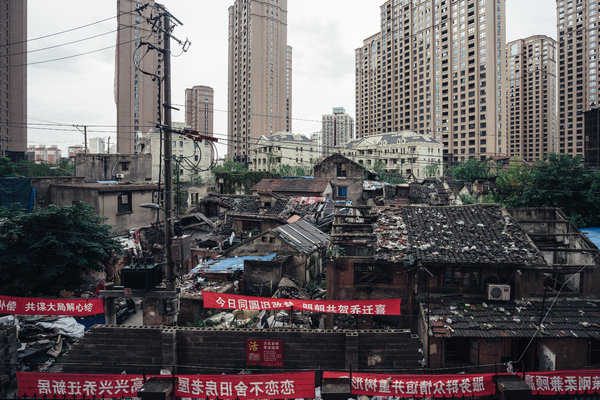Said Ms. Zheng: “I never expected housing prices in Shanghai would get this high.”
China is in the midst of a dizzying housing bubble. Shanghai’s average housing price is up nearly one-third from a year ago, with prices in major cities like Beijing and Guangzhou not far behind. Chinese consumers are rushing to buy homes before the government steps in with restrictions.
When rumors swept through Shanghai that the government would require homeowners to pay more in taxes and down payments to buy additional properties, many couples filed for divorce so that one partner could still be treated as an independent buyer.
But economists warn that the current boom on the Chinese mainland could be extra difficult to resolve: It comes with a growing amount of American-style debt.

“The risk is that the government is late in cooling the market, the rally spreads to more areas, pushing up household leverage and construction activity, pushing the bubble bigger, which is then followed by a bigger downward correction,” said Tao Wang, the head of China economics at UBS in Hong Kong.
Local regulators are already trying to cool things down. In the last few weeks, local authorities have accelerated efforts to tighten housing markets in up to 20 Chinese cities, according to economists at China International Capital Corporation, an investment bank.

But in many cases these steps have only added to the rush, as home buyers move in while they can.
By her account, Zhang Xia and her husband have enjoyed a happy marriage. Then the rumor swept the city that Shanghai authorities would make it harder for couples with one home to buy more.
On a recent Monday, Ms. Zhang, a 40-year-old resident of Shanghai’s Huangpu area, and her husband sat waiting at a local marriage registry office to file for divorce. Shanghai officials continue to deny that they will limit house buying by couples, but Ms. Zhang is among many who do not believe them.
“We know the government said this is a rumor, but they also said that a few times before, when the rumor actually came true,” Ms. Zhang said. “Some people even said the fact that the government said it’s a rumor means it’s going to be true.”
Shanghai, China’s financial capital, is at the heart of the property boom. Demand there is so intense that developers now commonly require sizable deposits of cash just to join a lottery to buy a new apartment. Only holders of winning numbers will be offered the chance to buy a unit. One flashy new development in central Shanghai charges a refundable 200,000 renminbi, or $30,000, to enter its lottery.
“In Shanghai now,” said Wang Jie, a sales manager there, “it’s not like you can buy an apartment just because you have money.”
Back on Lufeng Road, the recently widowed Ms. Zheng and her neighbors try to go about their lives despite the boom going on around them. Men and women play mah-jongg near a half-demolished house, one of a number of dwellings along the road in various states of disassembly, like a row of rotting teeth. Stray dogs sunbathe and alley cats hunt around piles of red bricks and wooden beams scattered on the street.
In recent months, local officials hung red propaganda banners on people’s housing extolling the benefits of selling out. “No more hesitation means no more disappointment,” reads one. Says another: “Requisition and compensation are lawful. Smart alecks will regret it later.”
“Look at those banners,” Ms. Zheng said, shaking her head. “It’s almost like the Cultural Revolution once again.”
Earlier, local officials told Ms. Zheng that the land where her home stands would be used to build supporting facilities for the next-door complex of high-rises built by China Vanke, the country’s largest property developer.
“They said that when people who live in the high-rises in Vanke look down, the view from their windows is our ugly roofs,” she said. “So they have to get rid of us.”
Courtesy New York Times


















